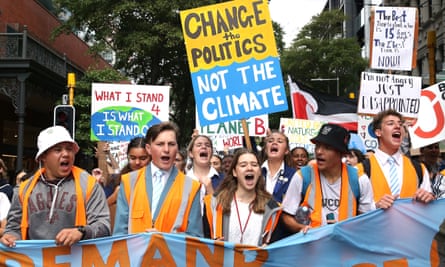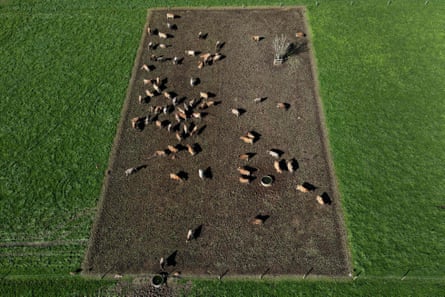The idea of protecting the natural world and keeping it in good health is something New Zealanders generally agree on.
Both of the country’s major parties, Labour and National, have passed significant environmental protection legislation while in power. National presided over the creation of the world’s first marine reserve in 1975, and in 2014, created the world’s first law conferring legal personhood to a landscape. Labour banned nuclear arms in 1987 and offshore oil and gas exploration in 2018. In 2019, it created the Zero Carbon Act, enshrining in law the country’s commitment to carbon neurality by 2050.
Overall, the country’s trajectory towards greater environmental protections and reduced emissions has been steady, if slow. That’s set to change with the newly formed coalition government.
Leading into the election, National’s environmental policy was solid, if a little vague, says Nicola Toki, chief executive of non-profit Forest and Bird. Toki had been waiting to examine it: the policy was published the day before voting closed.
But National did not win enough votes to govern alone and spent six weeks in coalition negotiations. There, the party’s environmental goals were unwound.
“They said they wanted to focus on cleaning up freshwater, boosting biodiversity, delivering for the climate, celebrating oceans, reducing waste, fixing planning laws,” says Toki. “What they’ve done is they are promulgating policy that will essentially do the opposite of all of those things.”
The government plans to repeal legislation protecting natural habitats and improving freshwater health. It will reclassify pests such as deer, which prevent forests from regenerating, as non-pests. It will revisit emissions reduction targets for agriculture – the country’s largest source of emissions – and ditch plans for a renewable energy storage system designed to end reliance on fossil fuels.

“I think National has traded off its environmental policies, or a lot of them, to the minor parties to build the coalition,” says Gary Taylor, chief executive of the Environmental Defence Society. “And so they’ve shifted from being compassionate conservatives, to being much more radical – repudiating the blue-green tradition that National’s had for for many years.”
Taylor, who’s worked with governments since 1980, has never seen a set of policies so antagonistic to the environment. “Our trajectory over the last several terms of several governments has been progressive,” says Taylor. “And now we’re going to go backwards.”
Relying on ‘magic beans’
The rollback of freshwater protections is particularly concerning to both Toki and Taylor. An initiative introduced by National in 2011, then continued by successive governments, it prioritises the health of waterways above usage of them.
Those waterways are in dire condition: three-quarters of all land is leaching more E.coli into rivers than health standards allow. A government survey in 2018 found that 82% of New Zealanders felt it was “very or extremely important” to improve water quality.
The freshwater policy was also set to reduce emissions by further limiting the number of livestock that could occupy farmland. Instead, to reduce agricultural emissions, the government is counting on new technologies yet to be developed – “magic beans”, in the words of climate analyst Paul Winton – rather than tools that already exist.
While on the campaign trail, National party leader Christopher Luxon promised to one-up Labour’s poor climate record by seating his climate minister in cabinet. That pledge has fallen by the wayside. Not only does the climate minister remain outside cabinet, but the environment minister has been booted out, too. The newly created minister for hunting and fishing has a seat.
Luxon has repeatedly restated National’s commitment to the Paris Agreement, but the party does not have a pathway to meet New Zealand’s targets, says Winton. It plans to use funds from its carbon auction to pay for tax cuts.
If the country overshoots its emissions, it must buy offsets. In September 2023, Treasury estimated that purchasing offsets would cost New Zealand between NZ$3bn and NZ$23bn, depending on carbon prices, which has not been acknowledged by either Labour or National’s planned budgets.

Defaulting on the Paris Agreement – which is the preferred approach of National’s coalition partner Act – would have implications for trade relationships, such as New Zealand’s new free-trade deal with Europe, which requires all participants to adhere to their Paris targets.
“What we’re now seeing is that it is international markets, and other countries, that are going to hold us to account,” says Winton.
Increasingly, adds Winton, export partners have more stringent environmental conditions than required by New Zealand legislation. “It shows that we’re a long way out of step.”
Luxon hopes to soak up emissions domestically, perhaps by using ocean-based methods yet to be developed. This isn’t realistic, says Winton, especially alongside a policy suite devoid of mechanisms to reduce emissions.
Gone are financial incentives for electric-car buyers, and funding for cycleways and public transport. In their place: a loosening of regulations permitting urban sprawl, which is known to increase emissions, and a reversal of the ban on oil and gas exploration, announced last week. This earned New Zealand criticism from its Pacific neighbours and the first Fossil of the Day dishonour at COP28.
The cost of this reversal to New Zealand’s reputation outweighs the potential benefits, says Winton. “It will have negligible meaningful impact for New Zealand, because we’ve got more than enough oil and gas here for the needs of a declining market over the next decade or so.”
The oil and gas sector was in decline before the ban, having decreased from $300m in 2010 to $10m in 2015. Oil multinational OMV has been looking to sell its New Zealand assets since the start of 2023.
Toki points out that environmental protections aren’t enacted solely for the benefit of “people in Goretex who like to walk around and look at stuff”, but also to safeguard New Zealand’s economy. Healthy forests provide flood control and carbon sequestration; landscapes make money. Before the pandemic, New Zealand’s biggest export industry was tourism. Today, more than 80% of export goods are produced by the country’s primary industries, dependent on its natural resources.
“National would say that they are the government of business, right?” says Toki. “And business is predicated on understanding that if you have an asset that delivers your income, then you invest strategically in that asset to ensure a sustainable return over time.”
Rebekah White is an editor at NZ Geographic Magazine and a science journalist